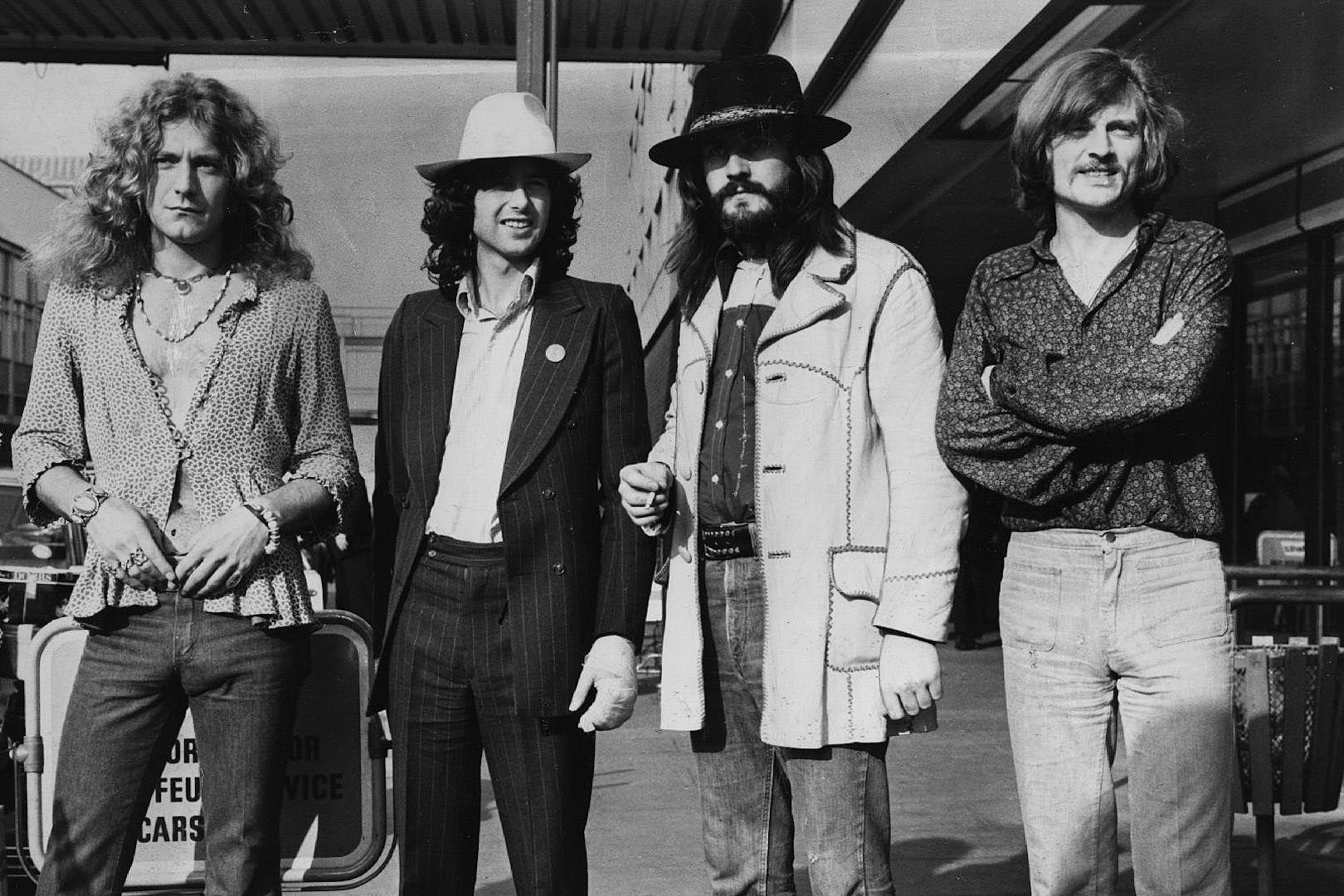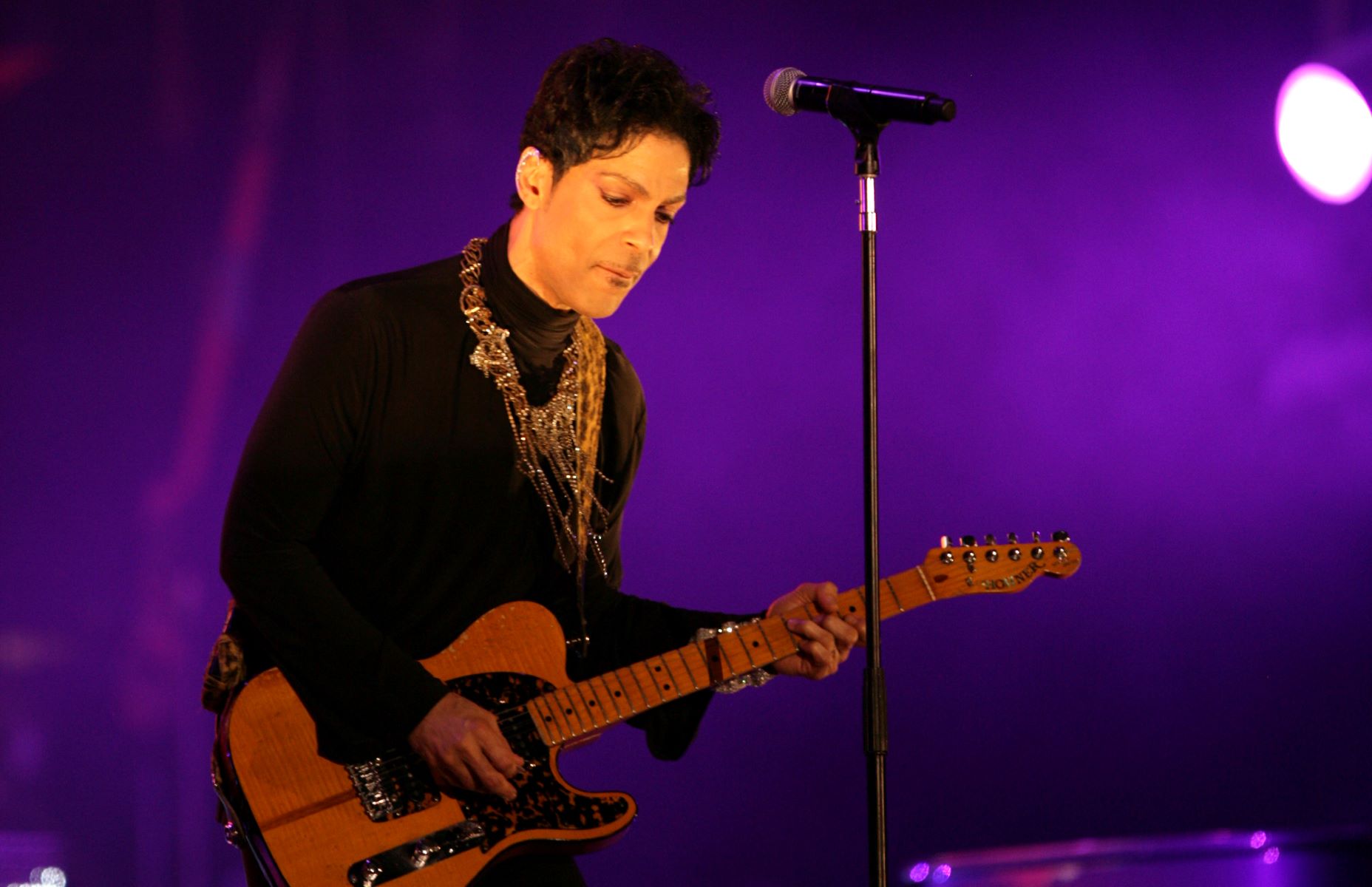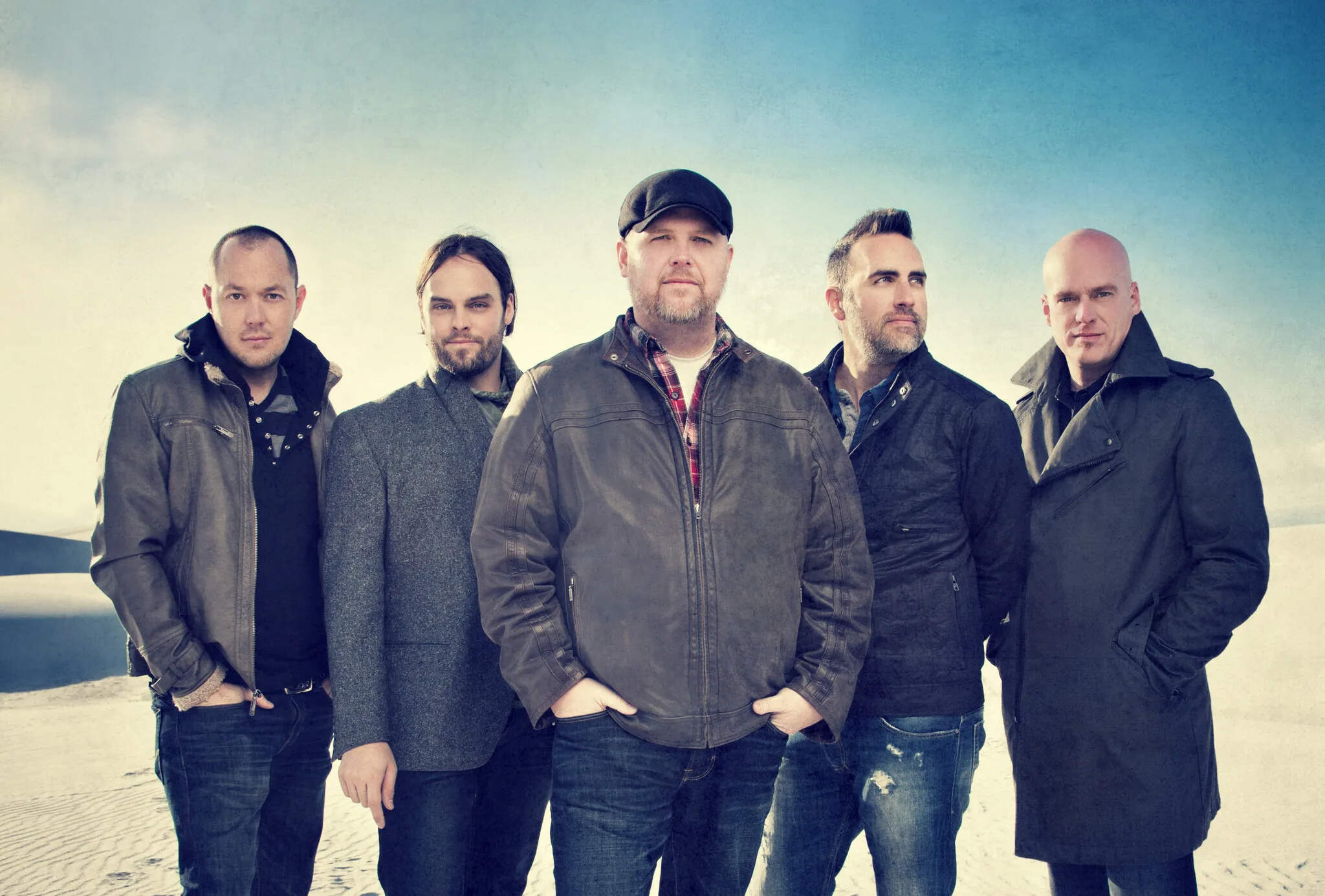

Rock
Who Originated Hard Rock Music
Published: November 22, 2023
Discover the origins of hard rock music, tracing its roots to the influential rock genre. Learn about the pioneers and evolution of this powerful and energetic style.
(Many of the links in this article redirect to a specific reviewed product. Your purchase of these products through affiliate links helps to generate commission for AudioLover.com, at no extra cost. Learn more)
Table of Contents
Introduction
Hard rock music is a genre that emerged in the 1960s and quickly gained popularity for its high energy, aggressive sound, and rebellious attitude. It has since cemented its place as one of the most influential and enduring genres in the history of rock music. From its roots in blues and rock ‘n’ roll, hard rock has evolved and diversified, spawning numerous subgenres and inspiring countless bands and musicians.
With its heavy guitar riffs, thunderous drums, and powerful vocals, hard rock music has the ability to captivate listeners and create a visceral experience. It’s a genre that appeals to those who crave raw intensity and a release of pent-up emotions. Whether it’s the iconic guitar solos, the pounding rhythm section, or the impassioned lyrics, hard rock has a way of resonating with its audience on a deep level.
Hard rock music also carries a rebellious spirit that sets it apart from other genres. It embodies a sense of defiance and resistance against societal norms and expectations. It’s no surprise that this genre has played a significant role in shaping youth culture, giving a voice to those who feel marginalized or misunderstood. From its early origins to its modern manifestations, hard rock continues to serve as a symbol of empowerment and self-expression.
In this article, we will delve into the origins of hard rock music, exploring its early influences, the birth of the genre, the pioneers who shaped its sound, and its evolution and popularization throughout the decades. By tracing the roots of hard rock, we can gain a deeper appreciation for its impact on the music industry and its enduring appeal to rock enthusiasts around the world.
Early Influences on Hard Rock Music
Before the emergence of hard rock as a distinct genre, there were several key influences that laid the foundation for its development. One of the primary influences on hard rock was the blues. The raw and emotive nature of blues music, with its soulful vocals and expressive guitar playing, served as a blueprint for the intense sound and emotional depth that would become synonymous with hard rock.
Another significant influence on hard rock was the genre of rock ‘n’ roll. The fast-paced, energetic rhythms and rebellious lyrics of early rock ‘n’ roll acts like Chuck Berry and Little Richard helped pave the way for the aggressive and rebellious attitude that would define hard rock. The genre also introduced the concept of the electric guitar as a dominant instrument in rock music, a characteristic that would become a hallmark of hard rock.
The British Invasion of the 1960s also played a crucial role in shaping the sound of hard rock. Bands like The Beatles, The Rolling Stones, and The Who infused elements of blues, rock ‘n’ roll, and R&B into their music, creating a more intense and amplified sound. Their experimentation with distortion, feedback, and heavy guitar riffs set the stage for the emergence of hard rock as a separate genre.
Furthermore, the psychedelic rock movement of the 1960s, with bands like The Jimi Hendrix Experience and Cream, pushed the boundaries of traditional rock music, incorporating distorted guitar sounds and extended improvisation. This experimental approach served as a stepping stone for the heavier and more aggressive sound that would come to define hard rock.
Lastly, the influence of early heavy metal bands, such as Led Zeppelin and Black Sabbath, cannot be overlooked in the development of hard rock. These bands emphasized heavy, distorted guitar riffs, thunderous drumming, and lyrics that delved into darker and occult themes. They set the stage for the emergence of the heavier, darker side of rock music that would later become known as hard rock.
Overall, these early influences helped shape the sound, attitude, and musical approach of hard rock music. By combining elements of blues, rock ‘n’ roll, British Invasion, psychedelic rock, and early heavy metal, hard rock emerged as a unique genre that captured the raw emotion, intense energy, and rebellious spirit of its predecessors.
The Birth of Hard Rock
The birth of hard rock as a distinct genre can be traced back to the late 1960s and early 1970s, when a new wave of bands began to blend the elements of blues, rock ‘n’ roll, and heavy metal to create a harder and more aggressive sound.
One of the key contributors to the birth of hard rock was the band Led Zeppelin. Led by guitarist Jimmy Page, the band took the blues-inspired rock of the time and infused it with a heavier and more experimental approach. Tracks like “Whole Lotta Love” and “Black Dog” showcased their powerful guitar riffs, thunderous drums, and soaring vocals, setting a new standard for the genre.
In the United States, bands like Steppenwolf and Grand Funk Railroad also played a significant role in shaping the birth of hard rock. Their energetic and hard-hitting songs, such as “Born to Be Wild” and “We’re an American Band,” resonated with audiences who were looking for a heavier and more intense musical experience.
Simultaneously, across the pond in Britain, bands like Deep Purple and Black Sabbath were emerging and pushing the boundaries of rock music. Deep Purple’s “Smoke on the Water” and Black Sabbath’s “Paranoid” became iconic tracks that showcased the heavy and dark sound that would come to define hard rock.
During this time, hard rock began to establish its distinct identity characterized by heavy guitar riffs, powerful vocals, and hard-hitting drumming. The genre also started to explore themes of rebellion, freedom, and personal expression in its lyrics, resonating with a generation that was seeking an outlet for their frustrations and desires.
As the 1970s progressed, hard rock continued to gain momentum and popularity. Bands like AC/DC, Aerosmith, and Van Halen emerged during this era, further solidifying the genre’s place in the music world. These bands brought their own unique style and approach to hard rock, contributing to its diverse and dynamic landscape.
The birth of hard rock marked a turning point in the history of rock music. It represented a departure from the milder, more melodic sound of 1960s rock and introduced a heavier and edgier sound that spoke to a new generation. Hard rock became a symbol of rebellion, empowerment, and self-expression, and its impact on the music industry can still be felt today.
Pioneers of Hard Rock
The evolution of hard rock would not have been possible without the pioneering bands and musicians who pushed the boundaries and laid the foundation for the genre. These visionaries helped shape the sound, style, and attitude of hard rock, leaving an indelible mark on the music industry.
One of the most influential pioneers of hard rock is Led Zeppelin. Led by the virtuosic guitarist Jimmy Page, Led Zeppelin melded blues, folk, and heavy rock into a powerful and distinct sound. Songs like “Stairway to Heaven,” “Kashmir,” and “Whole Lotta Love” showcased their mastery of dynamic shifts, intricate guitar work, and intense vocals, making them trailblazers of the genre.
Black Sabbath is another band considered a pioneer of hard rock. Their dark and heavy sound, combined with Ozzy Osbourne’s haunting vocals, laid the groundwork for the development of heavy metal and influenced countless future hard rock bands. Songs like “Iron Man” and “Paranoid” remain iconic classics in the genre.
Aerosmith is often credited with revitalizing hard rock in the 1970s. Their bluesy and energetic style, coupled with Steven Tyler’s charismatic vocals, set them apart from their contemporaries. Hits such as “Dream On,” “Walk This Way,” and “Sweet Emotion” solidified their status as trailblazers of hard rock.
AC/DC made a significant impact on the genre with their straightforward, no-frills approach to hard rock. Powered by Angus Young’s iconic guitar riffs and Bon Scott and later Brian Johnson’s distinctive vocals, AC/DC’s high-energy anthems like “Back in Black,” “Highway to Hell,” and “Thunderstruck” became instant classics.
Van Halen, with Eddie Van Halen’s innovative guitar techniques and David Lee Roth’s charismatic stage presence, also left an indelible mark on hard rock. Their virtuosic and energetic style, showcased in hits like “Jump,” “Hot for Teacher,” and “Panama,” influenced an entire generation of guitarists.
Other notable pioneers of hard rock include Deep Purple, with their progressive and heavy sound, and Queen, known for their theatrical performances and anthemic rock songs. Both bands pushed the boundaries of what was considered possible in hard rock, leaving a lasting impact on the genre.
These pioneers not only established the blueprint for hard rock, but their influence continues to resonate with musicians and fans alike. Their innovation, technical prowess, and boundary-pushing attitude laid the groundwork for countless bands that followed in their footsteps, ensuring the enduring legacy of hard rock.
Evolution and Popularization of Hard Rock
After its birth, hard rock continued to evolve and diversify, gaining popularity and influencing various subgenres within the rock spectrum. The 1980s witnessed a surge of commercial success for hard rock bands, attracting a wider audience and solidifying its place in mainstream music.
Metallica, a band synonymous with heavy metal, made an impact on the evolution of hard rock in the 1980s. Their aggressive sound and uncompromising attitude helped shape the thrash metal subgenre, infusing hard rock with even more intensity. Albums like “Master of Puppets” and “Ride the Lightning” showcased their mastery of heavy riffs and intricate songwriting, inspiring a new generation of hard rock musicians.
Bon Jovi, on the other hand, brought a more melodic and anthemic style to hard rock, playing a significant role in its popularization. Hits like “Livin’ on a Prayer,” “Wanted Dead or Alive,” and “It’s My Life” captured the hearts of millions, propelling Bon Jovi to international fame. Their blend of catchy hooks, uplifting choruses, and charismatic stage presence appealed to a wide audience, making hard rock more accessible to mainstream listeners.
Guns N’ Roses emerged in the late 1980s, gaining notoriety for their hard-hitting sound and rebellious image. With their explosive debut album, “Appetite for Destruction,” songs like “Sweet Child o’ Mine” and “Welcome to the Jungle” became instant classics. Guns N’ Roses brought a raw and gritty edge back to hard rock, influencing a new wave of bands and solidifying their place in rock history.
As the 1990s rolled around, the grunge movement took center stage, shifting the musical landscape and challenging the dominance of traditional hard rock. Bands like Nirvana, Pearl Jam, and Soundgarden introduced a darker and more introspective sound, pushing the boundaries of rock music. However, hard rock managed to adapt and evolve, with bands like Alice in Chains and Stone Temple Pilots infusing grunge with a heavier and more melodic approach.
In the 2000s and beyond, hard rock continued to thrive, with bands like Nickelback, Foo Fighters, and Alter Bridge carrying the torch and adding their unique flavors to the genre. Hard rock also found a place in the alternative and indie scenes, with bands such as The Black Keys and The White Stripes incorporating hard rock elements into their music.
The rise of digital platforms, streaming services, and social media has played a significant role in the continued popularization and accessibility of hard rock. Fans can now easily discover new bands and access a vast catalog of hard rock music, keeping the genre alive and thriving in the digital era.
Throughout its evolution, hard rock has remained a powerful force in the music world, defined by its energetic performances, aggressive sound, and rebellious spirit. From its blues and rock ‘n’ roll roots to its modern incarnations, hard rock continues to resonate with audiences across the globe, cementing its status as one of the most enduring and influential genres in rock music.
Conclusion
Hard rock music has emerged as a vibrant and enduring genre, drawing upon influences from blues, rock ‘n’ roll, heavy metal, and other genres to create its distinct sound. From its early origins to its evolution and popularization, hard rock has left an indelible mark on the music industry and continues to captivate audiences around the world.
The early influences on hard rock, including blues, rock ‘n’ roll, and the British Invasion, set the stage for the birth of the genre. Bands like Led Zeppelin, Black Sabbath, Aerosmith, and AC/DC pioneered the hard rock sound, integrating heavy guitar riffs, powerful vocals, and hard-hitting drums into their music.
As hard rock evolved, it diversified into various subgenres, such as thrash metal and grunge, reflecting the changing musical landscape. Bands like Metallica and Guns N’ Roses brought new levels of intensity and rebellion to the genre, while the grunge movement challenged the dominance of traditional hard rock in the 1990s.
Despite these challenges, hard rock has maintained its popularity and relevance. Bands like Bon Jovi, Nickelback, and Foo Fighters have played a crucial role in the continued popularity of the genre, attracting a wide range of listeners with their melodic hooks and anthemic choruses.
The digital era and the rise of streaming platforms have also contributed to the accessibility and popularization of hard rock, allowing fans to discover new bands and connect with the genre on a global scale.
In conclusion, hard rock music is a powerful and influential genre that continues to evolve and captivate audiences. From its early influences to its pioneers and the subsequent evolution and popularization, hard rock remains a symbol of rebellion, empowerment, and raw expression. Its impact on the music industry is undeniable, and its timeless sound continues to resonate with fans around the world.











